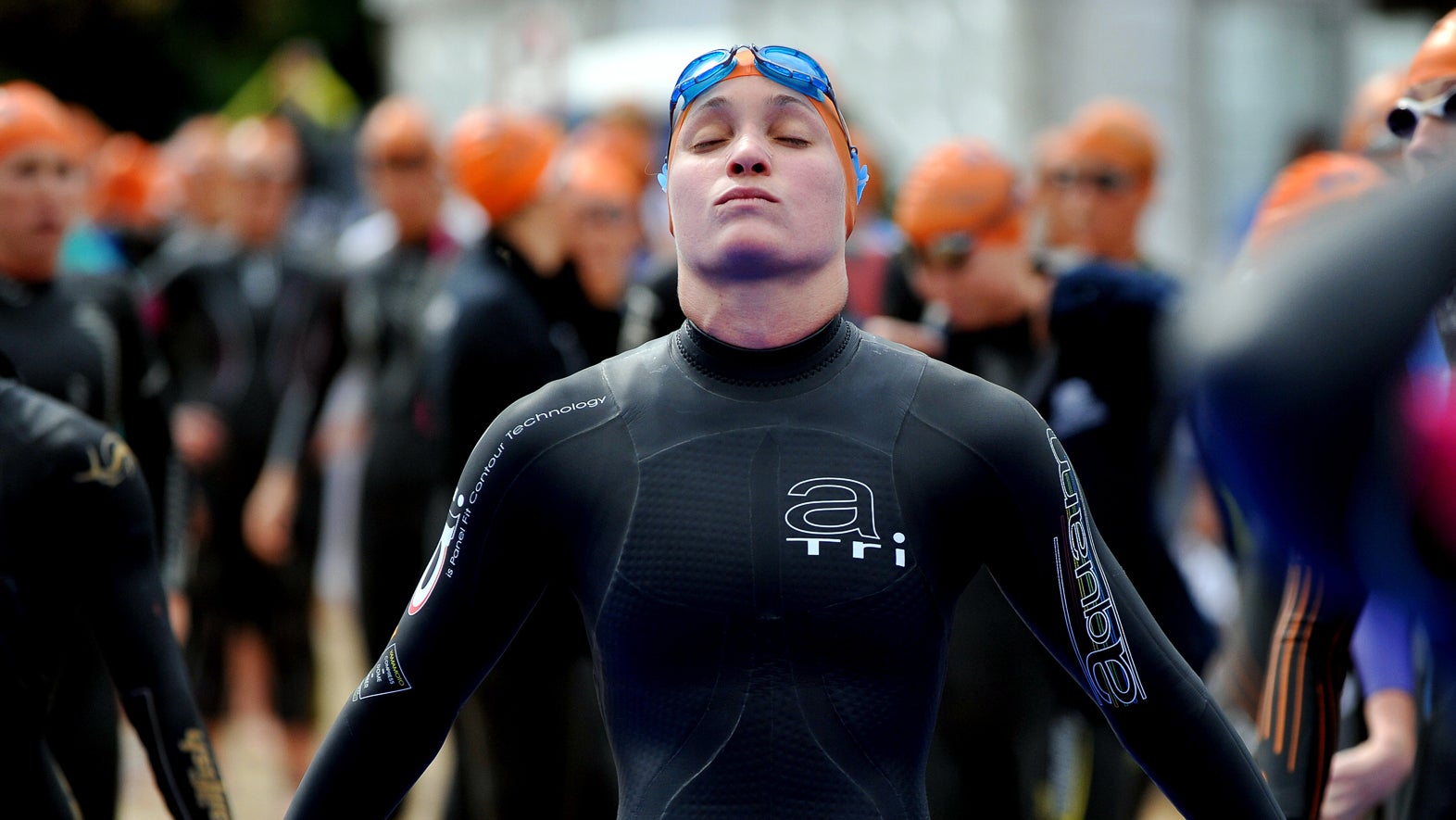What Coaches Need to Know About Mental Health

Photo: Janos Schmidt/Triathlon.org
On any given day, a coach can wear multiple hats: strategist, engineer, whip-cracker, cheerleader, researcher, mechanic, and analyst, just to name a few. Because athletes come to rely on their coaches for so much, it’s natural, then, that enough trust develops for another role to emerge: therapist.
This is in line with the well-worn saying in endurance sports that training is a form of therapy; that an hour-long run can be just as effective as an hour on a psychologist’s couch. To a certain degree, that can be true—from depression and anxiety to stress and ADHD, exercise is one of the most effective ways to improve mental health. In an analysis of data from more than 1.2 million U.S. adults, subjects reported an average of almost 3.4 days of poor mental health (stress, depression, emotional problems) in the past month. Those who exercised struggled nearly 1.5 fewer days a month, a 43.2% decrease in mental health burden.
But we shouldn’t be so quick to say endurance athletes are the picture of mental health. In fact, that same data analysis found that people who exercise for more than six hours a week have a higher mental health burden than those who exercise three to five times a week; exercising for more than three hours at a time is associated with worse mental health than not exercising at all.
Coaches should be aware of this propensity in endurance athletes, says licensed psychotherapist Rudy Hayek. “In my view, coaches would be bordering on unethical behavior if they do not go the extra mile and educate themselves on the mental and emotional aspects of their athlete.”
Endurance sport culture, with its heavy training demands and constant drive to improve performance, can fan the flames of mental health issues like anxiety and depression. Yet a pervasive glorification of “pushing through the pain” often spills over to aspects not related to training and racing—mental health chief among them. The evidence shows a belief that mental illness equates to weakness is why so few athletes, especially those training and racing at a high level, seek help when they truly need it.
Coaches are often the first to notice changes in mental health for their athlete. “The coach should know their athlete well enough to know when something is off,” says Hayek. Though athletes may not be so forthcoming about saying “I have anxiety” or “I have been feeling depressed lately,” the evidence may still be present. Some signs to look for include:
- Changes in concentration, motivation, or confidence
- Excessive irritability or easily becoming upset
- Changes in appetite inconsistent with training load
- Obsessive concern over aspects of training or lifestyle
- Changes in sleep patterns inconsistent with training load
- Low energy or chronic fatigue inconsistent with training load
- Loss of interest or pleasure in fun activities
- Depressed mood
- Overwhelming sense of impending danger, panic, or doom
- Increased alcohol or drug use
- Sudden problems with motor skills
Hayek says insight can also be gleaned by instructing the athlete to keep a daily log of their emotions and moods alongside their physical performance report. Hayek also recommends the Association for Applied Sports Psychology and the NCAA Mind, Body, and Sport Manual as resources for coaches looking to bolster their understanding of mental health in athletes.
When concerning symptoms show up, coaches should feel compelled to check in. Contrary to popular belief, this doesn’t have to be a dramatic, complicated intervention. In fact, simply saying, “Hey, are you doing okay? I’ve noticed ________” is a good starting point. This can spark a conversation about what’s going on and what resources the athlete needs at that time. This is usually the extent of what the coach can—and should—do when faced with an athlete’s depression or anxiety. Unlike troubleshooting a sluggish run workout, Hayek says coaches shouldn’t feel obligated to fix an athlete’s mental health issues:
“As much as coaches should remain involved and attentive, professional boundaries are certainly important here as well. Coaches should never try be the jack-of-all-trades, but should know where their limitations are. Not doing so would be detrimental to their credibility as well as to their athletes. Instead, the coach could become more well-versed at signs and symptoms of distress and be able to refer out to a therapist.”
Though some coaches can feel uncomfortable having conversations about mental health, it’s critical for the overall health of their athletes, says Hayek:
“Athletes rely on their coaches for their expertise, as well as their trust in that they will always have their best interest. Physical and emotional health are powerful partners, because the body, mind, and the brain are interdependent and synergistic. When mental and emotional health is left out of the equation of achieving optimized results, the athlete is robbed of what could be available to them from the untapped potential.”
RELATED: Mental Health Used to be Taboo in Sports. These Researchers Are Changing That.